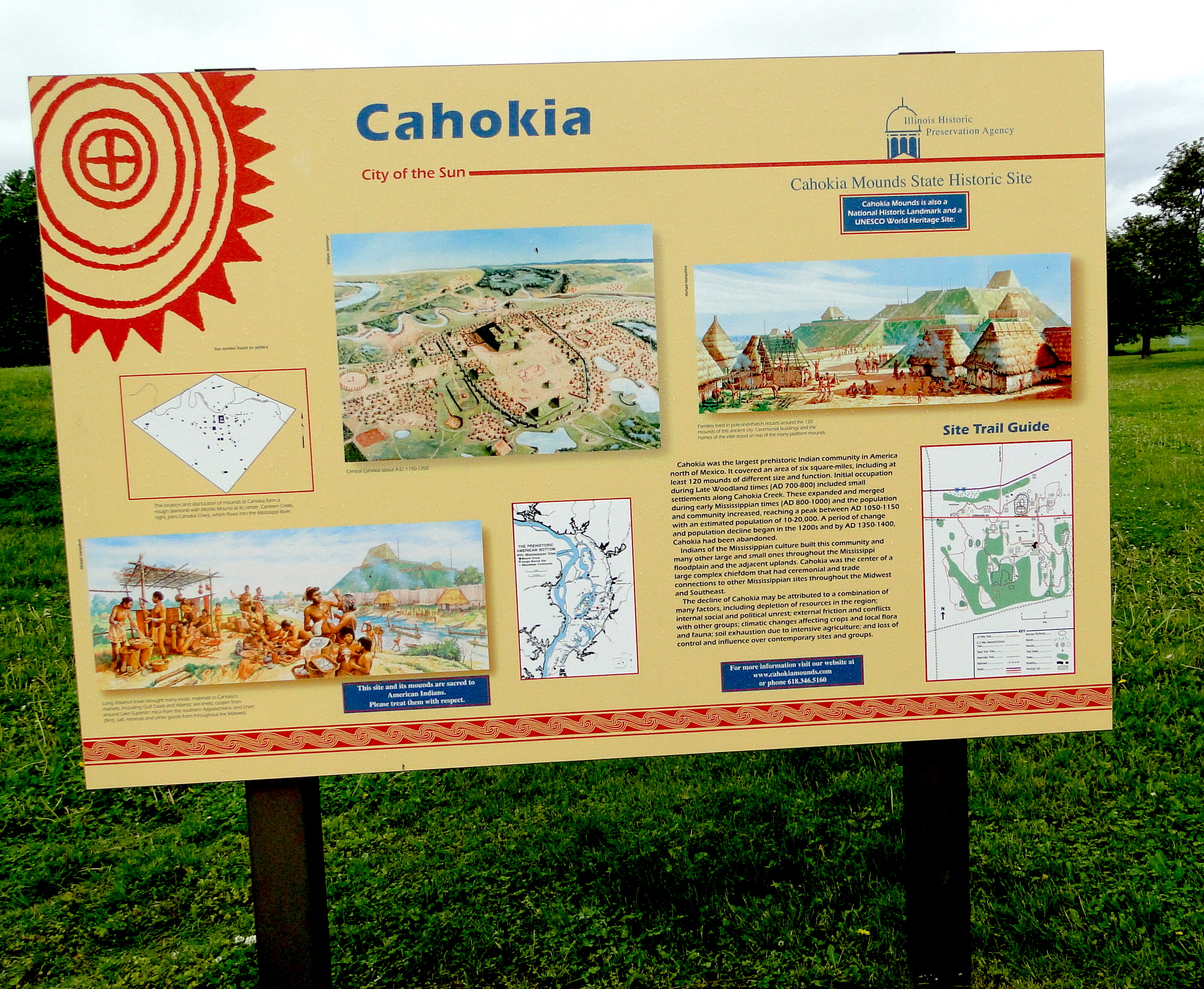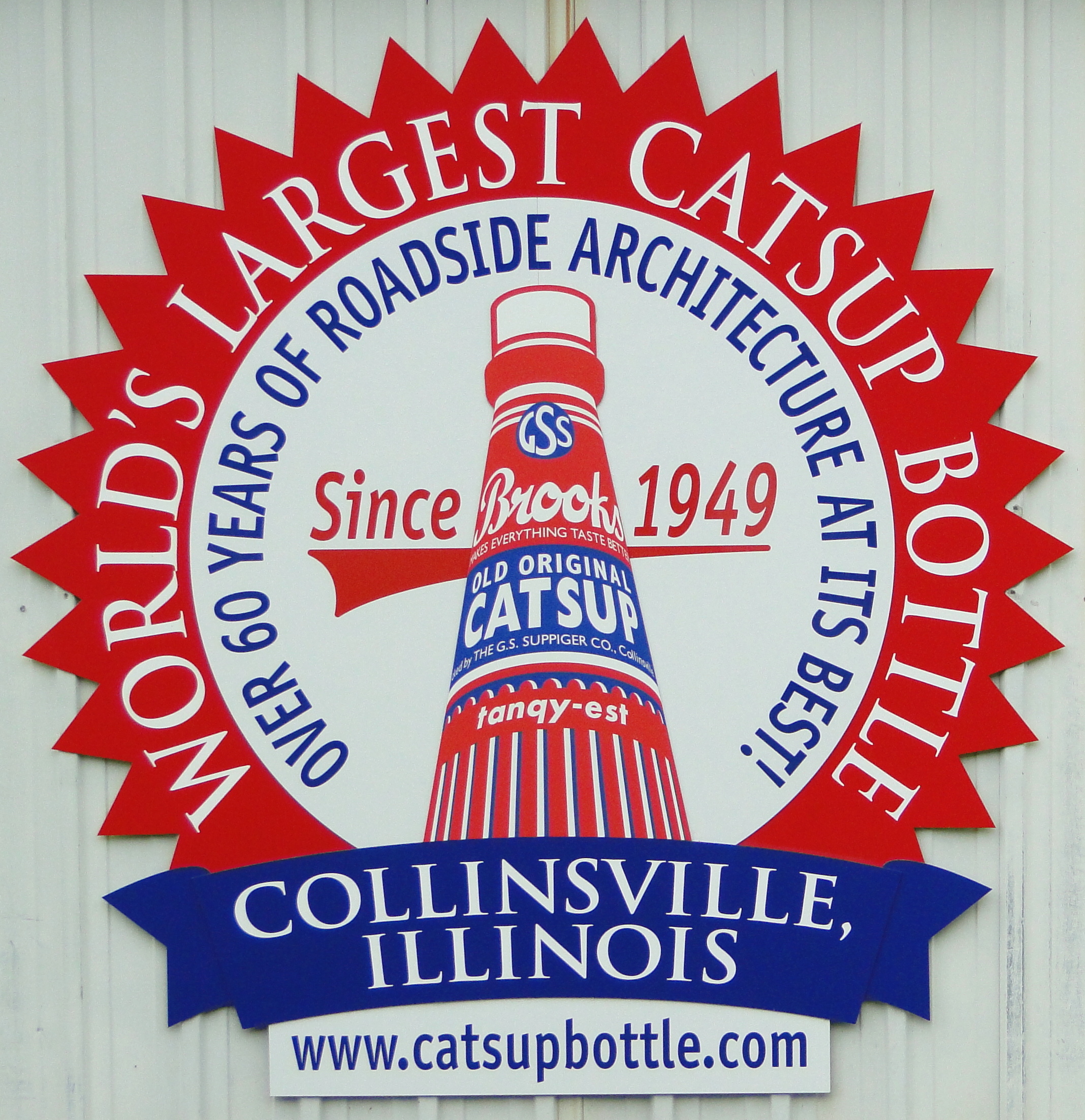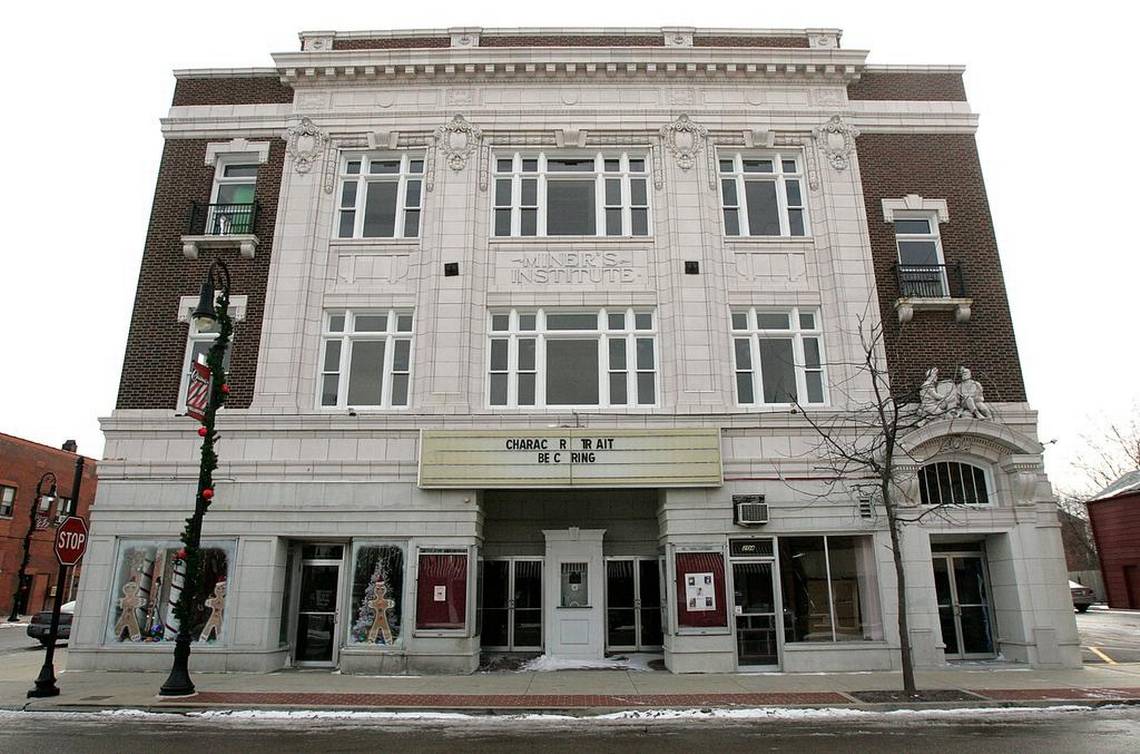The State of Illinois has one of the U.S.’s ten cultural UNESCO World Heritage sites! That site is Ancient Cahokia, located in Collinsville. Notwithstanding its archaeological fame as the capital of a great civilization, this site is underexploited as a tourism resource for regional development as seen in the signs at the turn-off into the site and at the site itself: they do not indicate Cahokia’s World Heritage status.

The ancient Mississippian Culture site of Cahokia Mounds was inscribed on UNESCO’s World Heritage List in 1982, before some of the world’s most iconic archaeological sites such as Stonehenge, Petra and Machu Picchu were designated. Although Cahokia Mounds lacks the visual splendor of those other places, the site does have an outstanding museum and its significance (what UNESCO calls “Outstanding Universal Value”) is unquestionable. The State of Illinois, downstate Illinois media and the Illinois Office of Tourism, however, pay inadequate attention to Cahokia Mounds. It is nearby Saint Louis-Missouri that appears to capture the larger share of tourism to this Illinois site. Much could be done to promote Cahokia Mounds regionally, nationally and internationally as World Heritage to the benefit of Collinsville in whose backyard the site, literally, is located.

In contrast, Collinsville hosts a vibrant Italian Fest (September, since 1984) and a popular International Horseradish Festival (June, since 1988). The World’s Largest Catsup Bottle Festival ended in 2018 after nineteen years. Certainly, these festivals should continue. To them could be added a World Heritage Festival in Collinsville, ideally to be held near April 18: International World Heritage Day.


 And Collinsville has other cultural heritage resources, for instance the important role that coal once played in this community. This is evidenced by the Miners Institute building (below), constructed in 1918 at the height of Collinsville’s coal economy. Today the building is on the National Register of Historic Places. Our project would like to link this aspect of Collinsville to the rich coal heritage trail we seek to develop.
And Collinsville has other cultural heritage resources, for instance the important role that coal once played in this community. This is evidenced by the Miners Institute building (below), constructed in 1918 at the height of Collinsville’s coal economy. Today the building is on the National Register of Historic Places. Our project would like to link this aspect of Collinsville to the rich coal heritage trail we seek to develop.

